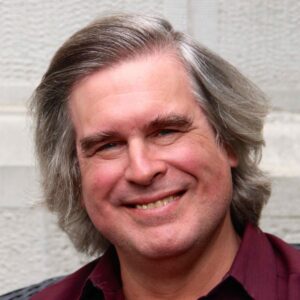
Gilles Brassard
Université de Montréal
Professor of computer science and Canada Research Chair in quantum information science at the Université de Montréal, Fellow of the Royal Society of London and Officer of the Order of Canada, Gilles Brassard is the father of quantum information science in Canada and one of its earliest pioneers worldwide.
Quantum physics, which has its roots in the early twentieth century, is one of the greatest discoveries in the history of science. It explains the behaviour of nature at the microscopic scale of elementary particles. Initially studied by Einstein and other luminaries for the sole purpose of understanding nature, with no practical applications in mind, it has become ubiquitous in today’s technology. From the laser to the computer, our society has become totally dependent on our understanding of quantum physics. However, a second quantum revolution is underway, in which the full power of the quantum world will be unleashed in ways never before thought possible, and some key aspects of this second quantum revolution owe their very existence to the trailblazing work of Professor Brassard.
Among his many discoveries, Professor Brassard is best known for the invention of quantum cryptography and quantum teleportation, both considered as fundamental keystones of the second quantum revolution. Quantum cryptography is the first truly practical application of this new paradigm. Harnessing counterintuitive features of the quantum world, it fulfils the age-old dream of codemakers: perfect secrecy in communications regardless of the codebreaker’s computing power and technological sophistication. Two decades after its invention, Technology Review (published by the Massachusetts Institute of Technology) hailed quantum cryptography as one of “10 Emerging Technologies that will Change the World”, in particular owing to commercial ventures that have sprung up to market quantum cryptographic technologies, such as IdQuantique in Switzerland.
Most famous among Professor Brassard’s subsequent discoveries is quantum teleportation, which may evoke images of Star Trek, but is strictly based on established science. It enables the transmission of quantum information over classical channels between previously prepared sites. Quantum teleportation was born of a brainstorming session that took place in Professor Brassard’s office, described as “one of those moments ripe in history for a breakthrough” by British astronomer and science writer David Darling in a chapter entitled “A Miracle in Montreal” of his popular science book Teleportation: The Impossible Leap. In his book, Darling refers to Professor Brassard as “one of Canada’s science superstars”. Twenty years after this invention, Thomson Reuters admitted Professor Brassard in their highly select Hall of Citation Laureates, in effect predicting that he will be awarded the Nobel Prize in physics for his “pioneering description of a protocol for quantum teleportation, which has since been experimentally verified”.
Professor Brassard has played a pivotal role in creating and then transforming the field of quantum information science from what was perceived to be merely a fringe pursuit three decades ago into an area of vigorous and dynamic international activity. The importance of the field is clear from the recent announcement of the European Commission of a plan to launch a flagship initiative on quantum technology to the tune of one billion euros. Furthermore, China has launched in August 2016 the first quantum communication satellite with the dual purpose of implementing quantum cryptography and testing quantum teleportation over arbitrary distances. By virtue of his visionary thinking and groundbreaking research, Professor Gilles Brassard ranks among the world’s most respected and influential computer scientists. It is safe to say that the entire quantum information science landscape would be very different today were it not for Professor Gilles Brassard’s far reaching discoveries.
